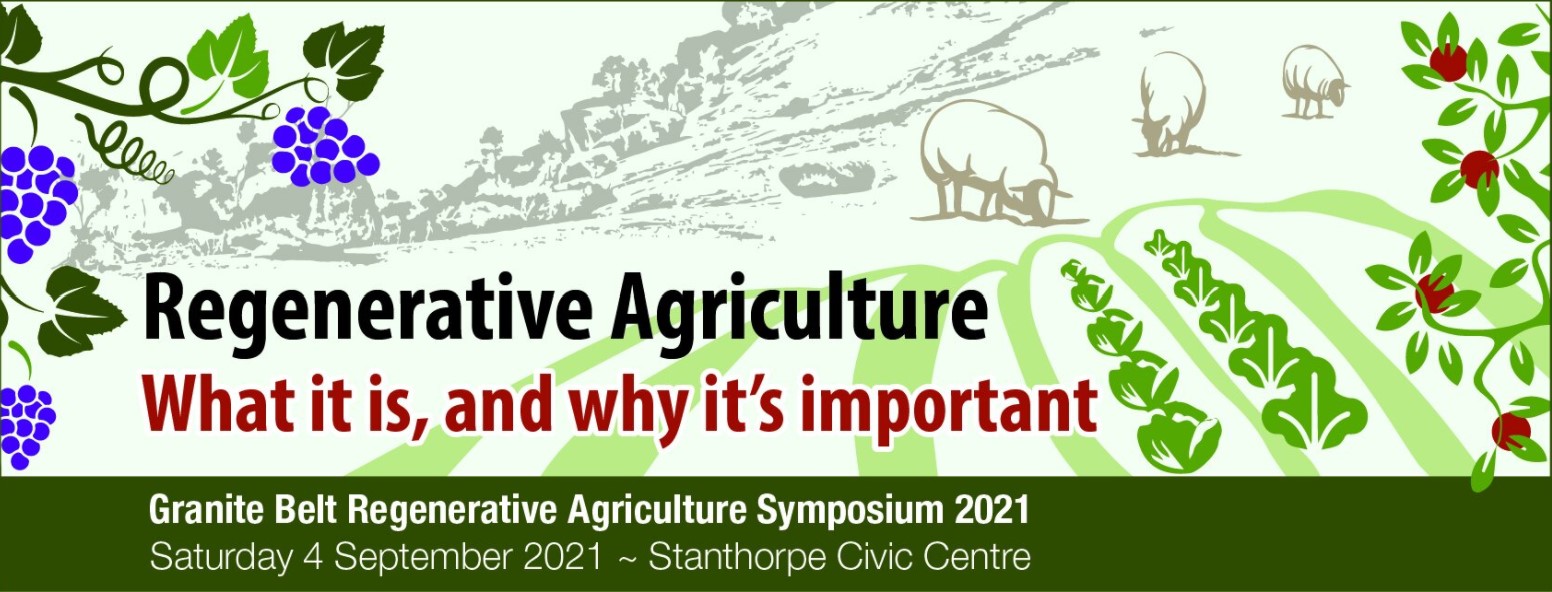
- This event has passed.
Granite Belt regenerative agriculture symposium 2021 — Stanthorpe
| Date: | Saturday 4 September 2021 | ||
|---|---|---|---|
| Time: |
8:00am-4:30pm AEST
|
||
| Cost: | $40 – $50 | Event category: | Past event |
| Website: | https://www.gbsan.org.au/events/symposium2021 | ||
| Venue |
Stanthorpe Civic Centre
Corner Marsh and Lock Streets
+ Google Map
Stanthorpe, Qld 4380 Australia |
||
Granite Belt Sustainable Action Network is hosting a one-day Regenerative agriculture symposium in Stanthorpe, 4 September 2021.
The symposium will address adapting land management and agricultural practices for improved productivity and resilience in the face of climate change, tailored to the needs of the Granite Belt. The keynote speaker for the symposium is Dr Charles Massy, regenerative farmer and author of Call of the Reed Warbler. Other speakers include local growers who are, or have, transitioned to more sustainable management regimes.
General admission – Early registration, available now $40
General admission – Late registration, from 20 August 2021 $50
Regenerative agriculture is an ecological approach to farming that enabling landscapes to renew themselves as part of the management process, rather than degrading the land by over-use. Regeneration enables the land to be resilient to change and to maintain productivity.
Regenerative agriculture can increase the productivity of agriculture, and improves the resilience of land to withstand drought and other disasters. It also has significant potential to reduce carbon emissions in the atmosphere.
It is most commonly practiced in small, family-run operations, but these have potential to make a huge impact and encompasses a wide range of farming and land management practices, including: permaculture, agroforestry, biodynamic farming, food forestry, holistic/ecological grazing, cropping with biological inputs and cropping into native landscapes.
Who is the symposium for?
The symposium is for horticulturists, viticulturists, orchardists and graziers, as well as managers of public and private land in the Granite Belt and surrounding area. It will also be useful for scientists and policy makers in land management and agriculture. You don’t have to be a farmer to use regenerative practices. Everyone can benefit from regeneration.
Visit the Granite Belt Sustainable Action Network website for more information and purchase tickets.
